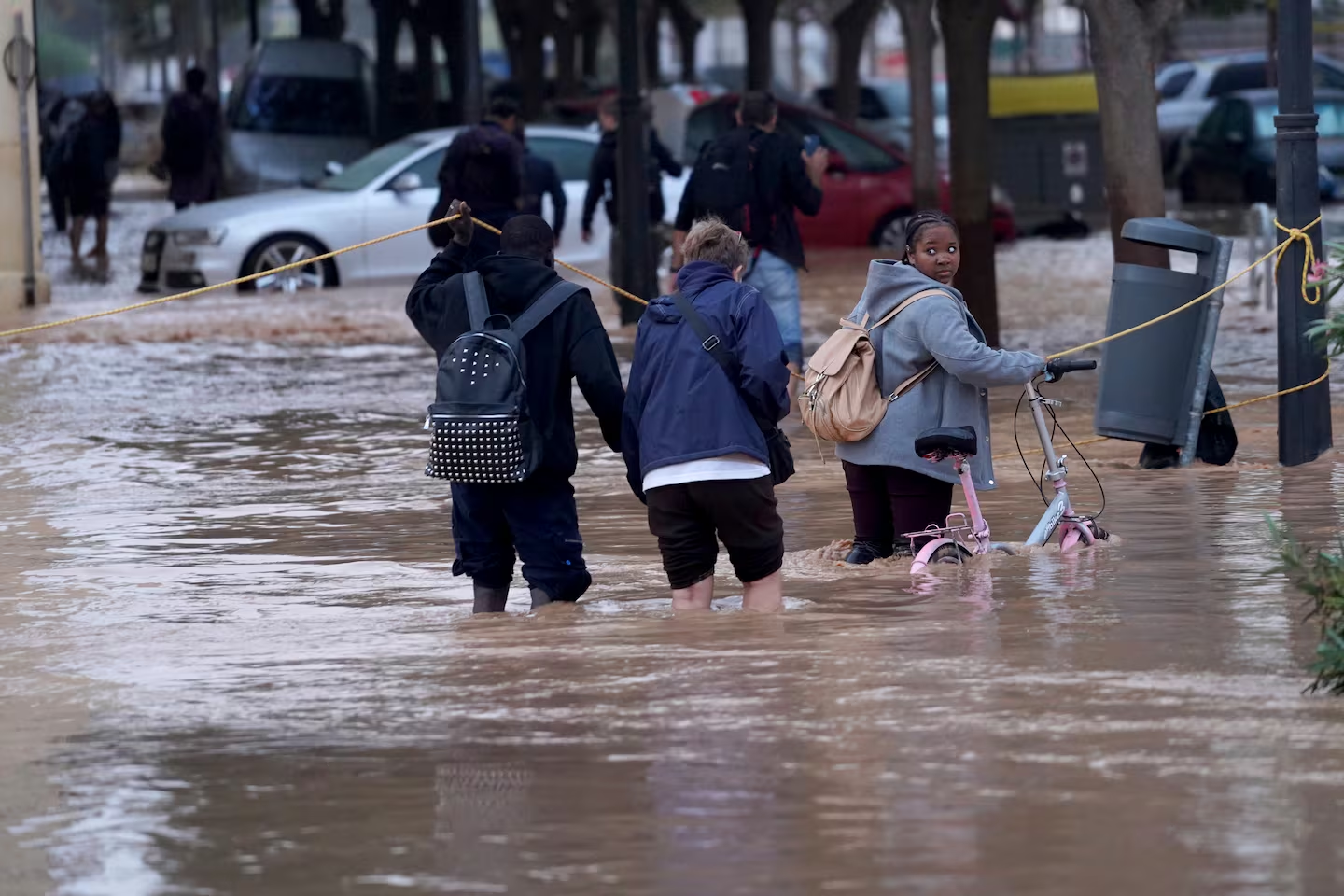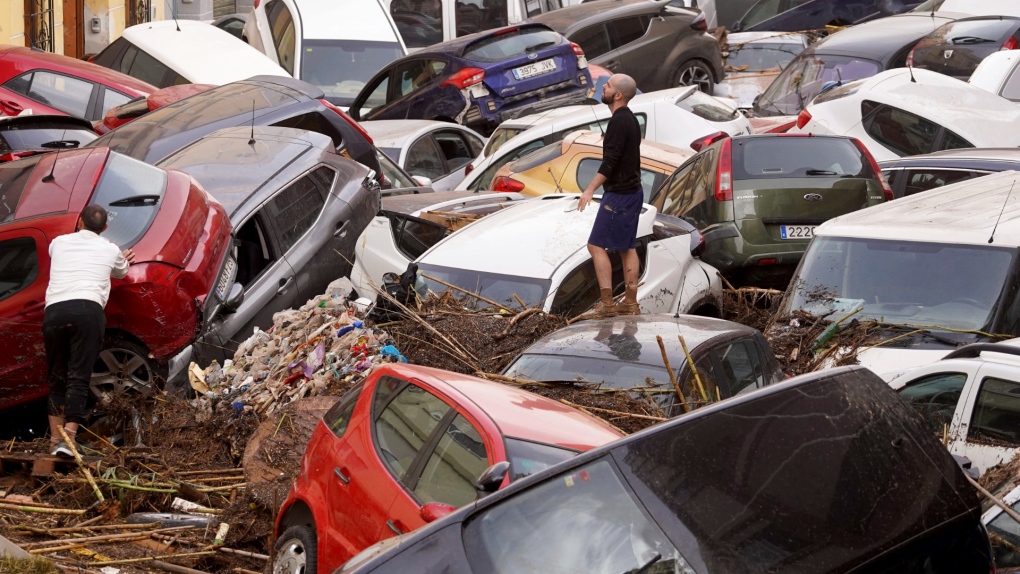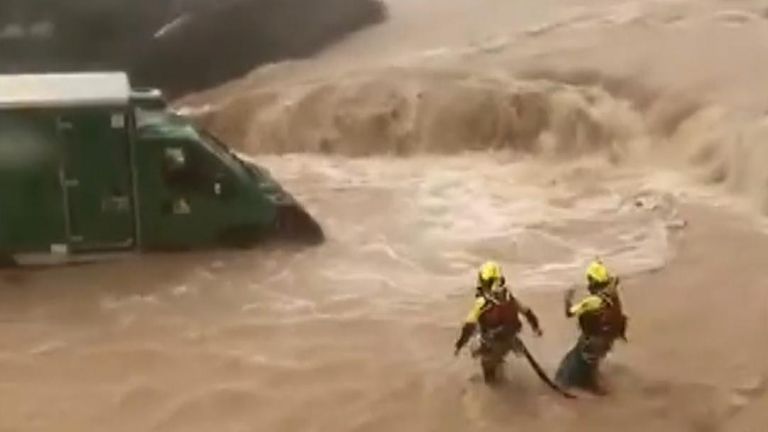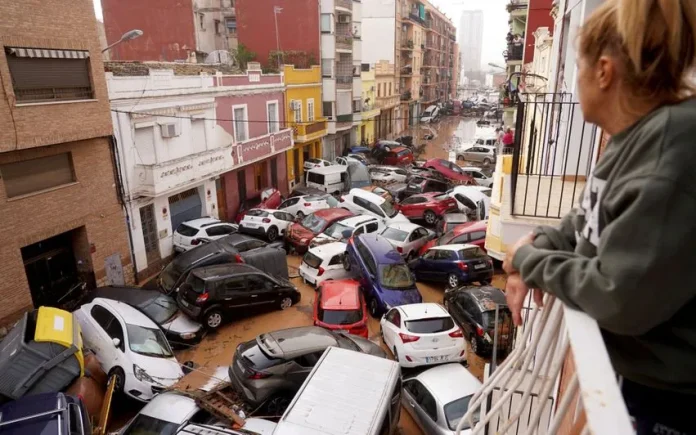Flash Floods in Valencia Claim 51 Lives Amid Torrential Rainfall
Valencia, Spain — At least 51 people have tragically lost their lives in flash floods that swept through the eastern region of Valencia following relentless torrential rain on Tuesday. The downpour inundated roads and towns, leaving vast areas underwater, prompting a massive rescue operation by local authorities and emergency services.
On Tuesday, the region experienced some of the heaviest rainfall in years, with certain areas, such as Turis and Utiel, recording over 200 mm (7.9 inches) of rain in just a few hours. The sudden and intense nature of the rainfall overwhelmed local drainage systems, causing rivers to overflow and leading to flash floods that caught many residents off guard.
As night fell on Tuesday, rescuers using dinghies ventured into the floodwaters, working tirelessly to locate and assist those trapped. Dramatic television footage from Utiel depicted emergency teams battling the elements, showcasing their determination to reach people stranded by the rising waters. Carlos Mazon, the regional leader of Valencia, addressed the media, highlighting the challenges faced by emergency services as they struggled to reach isolated communities.
Mazon emphasized that the difficulties in accessing certain areas were not due to a lack of resources or willingness on the part of emergency services, but rather a result of the overwhelming conditions. “If emergency services have not arrived, it’s not due to a lack of means or predisposition, but a problem of access,” he stated, acknowledging the gravity of the situation.

Dozens of distressing videos circulated on social media, depicting individuals trapped by the floodwaters. Some were seen clinging to trees in a desperate bid to avoid being swept away, while firefighters worked diligently to free drivers whose cars had become stranded in submerged streets. In Alzira, local firefighters were seen racing against time to help those caught in the deluge, a scene that underscored the severity of the flooding.
Emergency Response and Precautions
In response to the disaster, emergency services in the Valencia region urged residents to refrain from unnecessary travel and to stay updated with information from official sources. A specialized military unit trained in rescue operations was deployed to assist local emergency workers, further demonstrating the coordinated effort to manage the crisis.
Spain’s state meteorological agency, AEMET, declared a red alert for the Valencia region on Tuesday due to the severe weather conditions. Following the initial onslaught of rain, the alert was downgraded to yellow as precipitation levels began to decrease. However, the impact of the flooding was already devastating, with major disruptions to transportation and essential services.
Trains to major cities such as Madrid and Barcelona were canceled, and schools in the worst-hit areas were closed. In a show of solidarity, Francina Armengol, the Speaker of the lower house of the Spanish Parliament, announced that Wednesday’s parliamentary session would be postponed in light of the disaster.
This catastrophic event marks the deadliest flooding incident in Europe since 2021, when flash floods in Germany claimed at least 185 lives. It is also the most severe flood-related catastrophe in Spain since 1996, when 87 people died and 180 were injured in a flash flood near Biesca in the Pyrenees.

The frequency and severity of such extreme weather events in Spain have raised alarms among scientists and meteorologists, who point to climate change as a significant factor. Research indicates that the warming of the Mediterranean Sea increases water evaporation, which in turn intensifies rainfall patterns, contributing to the likelihood of torrential downpours.
Government Response and Community Resilience
In the aftermath of the floods, Spanish Prime Minister Pedro Sánchez urged citizens to remain vigilant and take precautions as amber warnings were issued in several regions, including Andalusia and Catalonia. He cautioned against driving and advised residents to avoid bridges and low-lying areas prone to flooding. Sánchez’s message of caution underscores the ongoing risk as the country continues to face adverse weather conditions.
Despite the chaos and destruction, the resilience of the Spanish people shone through. Time and again, Spain has demonstrated its ability to come together during crises, whether during the COVID-19 pandemic or previous natural disasters. The government and local communities are expected to collaborate closely in the recovery efforts, ensuring that those affected receive the necessary assistance and support.
The scale of the disaster has raised humanitarian concerns, as many residents are left without shelter or basic necessities. Emergency shelters are being established to accommodate those displaced by the floods, and local organizations are mobilizing to provide food, water, and medical assistance to affected individuals.
The Spanish Red Cross and other charitable organizations are playing a crucial role in the response efforts, coordinating with government agencies to deliver aid to those in need. The situation remains fluid, with emergency teams continuing to assess the extent of the damage and identify areas that require immediate attention.
A Call for Action on Climate Change
The recent flooding serves as a stark reminder of the pressing challenges posed by climate change and the need for effective mitigation strategies. As extreme weather events become more frequent, governments around the world must prioritize investments in climate resilience and infrastructure improvements to protect vulnerable communities.
Experts are calling for a comprehensive approach to address the underlying causes of climate change, including reducing greenhouse gas emissions and enhancing disaster preparedness. By taking proactive measures, governments can better safeguard their citizens against the increasingly unpredictable nature of weather-related disasters.

As Valencia grapples with the aftermath of the devastating flash floods, the resilience and determination of its people will be tested once again. The tragic loss of 51 lives highlights the urgency for effective emergency response and preparedness strategies to mitigate the impact of future disasters.
In the face of adversity, Spain’s communities are banding together to support one another, demonstrating the strength of the human spirit in times of crisis. The road to recovery will undoubtedly be long, but with coordinated efforts and a commitment to addressing the challenges posed by climate change, there is hope for a brighter future.
As the nation mourns the lives lost and supports those affected, the events of this week will serve as a catalyst for change, urging leaders to prioritize the safety and well-being of their citizens in an increasingly volatile world.




